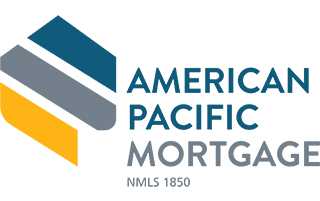What is the Difference Between HECM Loans and a Reverse Mortgages?
The Home Equity Conversion Mortgage is offered to those over age 62 amid a plethora of multiple tools that take on the name of a reverse mortgage and similar. So it’s easy to understand how folks can be easily confused. Even experienced finance folks can be caught off guard with the differences between private products versus those backed up by the federal government.
What is a HECM Loan?
Among the various financial tools available for seniors, the Home Equity Conversion Mortgage or HECM Reverse Mortgage is a well-known and visible reverse mortgage tool available. It is specifically supported and backed by the federal government through the Department of Housing and Urban Development, or HUD for short. This tool in particular allows homeowners who are eligible to borrow against the home they own up to $679,650 in 2018, assuming the home has that much equity in it. The actual financing provided can be lent either as a fixed rate or as an adjustable one.
The use of an HECM can benefit seniors in a number of ways. It can improve monthly cash flow for a better standard of living. It can provide for home improvements to make a home more accommodating for someone with a disability. It can also be used for a far more enjoyable retirement after a long career. And, if one used the HECM reverse mortgage for a purchase, it avoids dealing with closing costs twice as would occur with a normal home sale and replacement purchase. That allows a couple to relocate themselves to a better retirement location for a much lower cost.
How is This Different From a Reverse Mortgage?
A traditional private reverse mortgage is not necessarily backed by the federal government, whereas an HECM is not only underwritten by HUD, it is also regulated to consumer safety by the federal government as well. This allows interest rates charged to be far lower. Private reverse mortgages have to cover their risks differently, which significantly drives up the cost to the consumer. Private reverse mortgages can be restricted in use as well. With an HECM, the financing can be used for any purpose.
What Are the Other Types of Reverse Mortgages Available?
The HECM is not the only reverse mortgage tool on the market for a consumer. As mentioned at the beginning of this article, it sits within a group of similar financial tools, which has the potential to confuse folks who don’t educate themselves ahead of time. Some are restricted in use and some are designed for a modern real estate market that is moving higher and faster than the federal government rules can keep up with.
Single-Purpose Reverse Mortgages
Designed more for home renovation needs, the single-purpose reverse mortgage is a smaller financing tools intended to be used by consumers for a specific purpose. Many borrowers use this tool for remodeling a home to make it more compatible with a medical need. A single purpose could be a long-awaited trip, or it could be taking care of property taxes. Much depends on the program offering the single-purpose reverse mortgage and their lending rules. Non-profits typically tend to be the frequent players in this field, helping out lower-income borrowers with specific needs they otherwise can’t afford. This i also fills a gap for those borrowers who may not be able to qualify for the regular reverse mortgages available.
How it Differs From a HECM Loan
Fundamentally, the HECM choice is open-ended for use, while the Single-purpose Reverse Mortgage is literally the opposite as a product. It is almost always approved for only one use, pre-determined by the lender program the consumer applies to.
Proprietary Reverse Mortgages
Private lenders are free to offer their own reverse mortgages, which are technically known as proprietary reverse mortgages. These financing tools are specific to the companies that offer them, and they include variations different lenders offer to make them attractive. These are not automatically backed by the federal government unless the lender tailors their product to federal requirements. Some are not and, as a result, tend to have other costs involved to cover risk. However, open-ended risk is not where many lenders want to be, so the majority of lenders copy HECMs to have the protection of the government behind them.
How it Differs From a HECM Loan
Because proprietary loans come from private companies, they fill in a market gap where the traditional HUD-backed HECM product can’t fit. This is more and more common as today’s markets push valuations higher. Where HUD programs stop eligibility at $679,650 in 2018, proprietary reverse mortgages can handle loan amounts for higher figures. This would be the typical path for a jumbo loan in a reverse mortgage scenario.
Which is For You?
There is no default answer to the question of which reverse mortgage vehicle is for you? The individual tools vary widely, and some will work better than others for the same person at different times in life. And, of course, the HECM works for some better than others in general comparison as well. The way to know which choice is the better one for your situation is to first educate oneself with the information available for each program (and there is much information available at one’s fingertips via the Internet). Second, work with a professional advisor on how each choice can fit a given need. Finally, make an educated decision. This path will produce a satisfactory outcome most of the time.
*Reverse mortgages are loans offered to homeowners who are 62 or older who have equity in their homes. The loan programs allow borrowers to defer payment on the loans until they pass away, sell the home, or move out. Homeowners, however, remain responsible for the payment of taxes, insurance, maintenance, and other items. Nonpayment of these items can lead to a default under the loan terms and ultimate loss of the home. FHA insured reverse mortgages have an up front and ongoing cost; ask your loan officer for details. These materials are not from, nor approved by HUD, FHA, or any governing agency.
The views, articles, postings, and other information listed on this website are personal and do not necessarily represent the opinion or the position of American Pacific Mortgage Corporation or US Lending Company.
* For loan examples and more information visit our disclosure page at https://www.uslendingcompany.com/disclosures/





